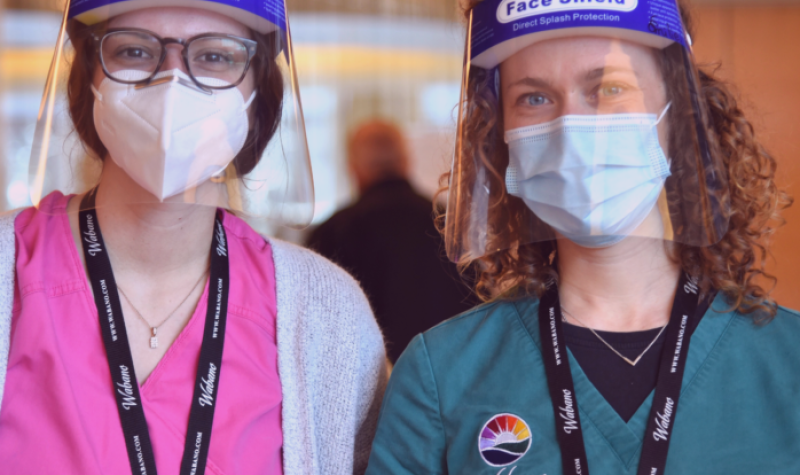The Wabano Centre is reopening its Indigenous Vaccination Hub in partnership with Ottawa Public Health.
The Wabano Centre, located at 299 Montreal Rd., is an urban health centre serving Ottawa’s Indigenous community. Since February 2021, the health centre has periodically hosted on-site pop-up clinics offering vaccines to Indigenous residents and their non-Indigenous household members, beginning with those aged 70 and older and gradually expanding to those aged five and older. The clinic has been operating on a limited basis for most of the month of January.
According to Wabano’s website, the clinic will be open on Tuesdays and Thursdays from 10 a.m. until 4 p.m., beginning Feb. 1. Appointments aren’t necessary, but are encouraged due to a high demand for vaccines.
The partnership with Ottawa Public Health is intended to help boost the vaccination rate among Ottawa’s Indigenous communities, which have statistically lower willingness to be vaccinated than the overall Canadian population.
According to Statistics Canada data from March 2021 (updated August 2021), the rate of willingness to receive the vaccine among Canada’s Indigenous communities is 71.9 per cent— slightly lower than the national average (76.9 per cent). Currently, there is no data available concerning the vaccination rate among Indigenous communities.
According to Indigenous Services Canada (ISC), a total of 687 Indigenous communities in Canada are reporting on vaccinations as of January 2022, with a total of 1,043,188 first, second, and third doses administered to members of Indigenous communities.
ISC is working in partnership with provincial and territorial governments to reach Indigenous communities, but they aren’t handling the rollout in urban communities.
Wabano continues to encourage vaccination among Indigenous residents, offering information on the safety and efficacy of vaccines to vaccine-hesitant members of the community.
“If you have been hesitant about receiving your vaccine, or have any COVID-19 vaccine-related questions, now is the time to come by and speak directly to a public health nurse to alleviate any concerns,” reads an announcement from Wabano.
The provincial government announced in December that they would invest $30 million in the vaccine rollout to Indigenous communities, including $10 million dollars for urban-Indigenous communities.
The press release from the Ontario government stated that the province would work collaboratively with “key urban Indigenous healthcare partners.”
In Ottawa, the Wabano Centre has been identified as one of those partners, but Ottawa Public Health is also working closely with Akausivik Inuit Family Health Team (AIFHT), located at 24 Selkirk St. in Vanier.
Akausivik offers health services to Ottawa’s Inuit community, including doses one, two, and three of the COVID-19 vaccine for ages five and older. Their hours of operation run from 9:30 a.m. to 5 p.m., Monday-Friday.
Both clinics require proof of identification, including proof of Indigenous identity, to access clinic services.
Listen to the CHUO update below:


